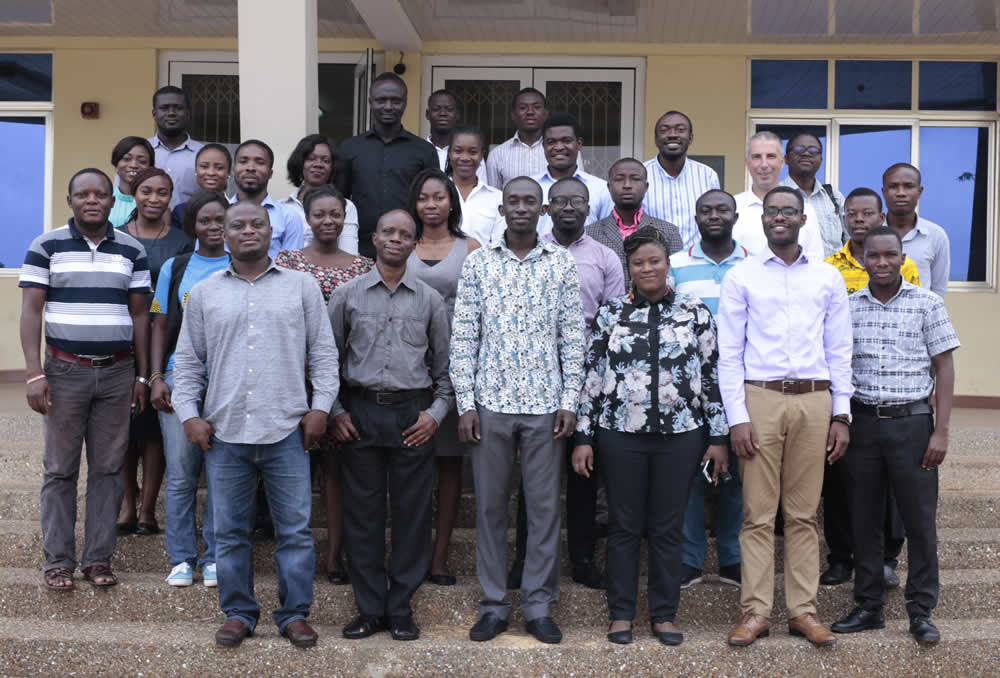Kwame Nkrumah University of Science and Technology (KNUST) Central Lab And Partners Host NMR Basic Course in 2017

As part of efforts to build the capacity of researchers, the Central Laboratory of Kwame Nkrumah University of Science and Technology (KNUST) in collaboration with the Building Stronger Universities II (BSU II) Project has organized a two-day training workshop on the application of Nuclear Magnetic Resonance (NMR) spectroscopy in quality control processes and basic maintenance of high performance liquid chromatography (HPLC) equipment.
In opening the workshop, Dr. Lawrence Sheringham Borquaye, a facilitator, stated that the Central Laboratory seeks to ensure that the use of the facilities to execute research go beyond the usual.
Dr. Borquaye said the workshop was very necessary to upgrade the skills of participants in the use of NMR. According to him, traditionally, the technique of NMR has been used in elucidating the structures of known and hitherto unknown compounds, with NMR playing a key role in natural product research with numerous compounds characterized through this dynamic technique.
He went on to explain that the NMR technique can be employed in quality control processes such as authentication of pharmaceutical products and herbal medicines and also in the evaluation of the quality of food products and beverages.
Dr. Borquaye noted that participants would be taken through procedures involved in acquiring data in one-dimensional (1-D) experiments. They will also benefit from practical work in sample preparation and 1-D data acquisition and exposure to how NMR could be employed in other research activities such as food and pharmaceutical quality control processes among others. Dr. Edmund Ekuadzi will lead the team of facilitators for the NMR workshop.
Dr. Sebastien Viollini, a facilitator from Roche Pharmaceuticals, Switzerland, said his participation in the workshop was part of the Roche Pharmaceuticals’ secondment programmes for philanthropic purposes. Dr. Viollini said the programme required employees to visit developing countries to improve research and training.
Dr. Viollini would take participants through quality processes in the laboratory to meet local and international standards. Dr. Viollini will also expose participants to the handling, maintenance and troubleshooting of equipment and quality assurance through systems qualification with regards to the HPLC.
Ms. Hannah Adom-Eyison, speaking on behalf of the BSU II Project anchor, Prof. Robert C. Abaidoo, indicated that BSU was supporting the training which was in line with building institutional research capacity with the ultimate goal of making KNUST the best in research to solve problems and to increase its world ranking and visibility. She therefore encouraged participants to make use of the opportunity to upgrade themselves.
In all, 20 participants from the university ranging from lecturers, technicians, research assistants and graduate students took part in the training. The workshop was funded by the BSU II Project.
